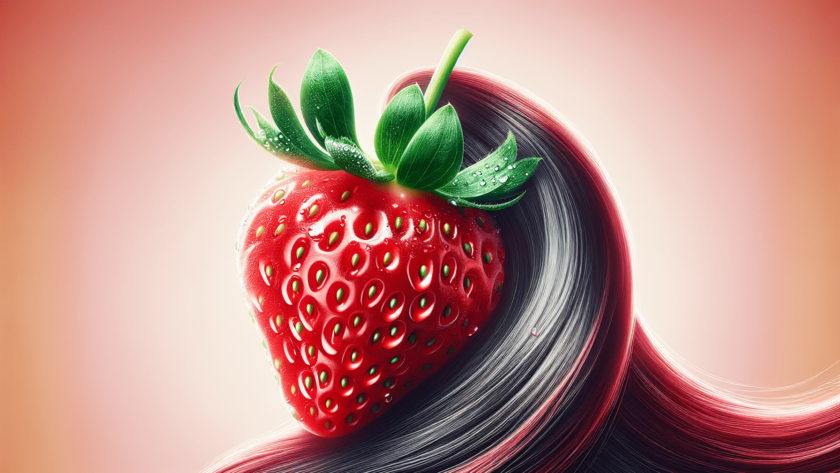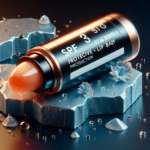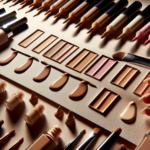Are you tired of seeing more and more strands of hair in your hairbrush or on your pillow each day? If so, you’re not alone. Hair fall is a common concern for many people, but the good news is that there are steps you can take to prevent it. In this article, we will discuss some simple yet effective tips and tricks that you can incorporate into your daily routine to keep your hair healthy, strong, and fall-free. So say goodbye to those worrisome hairs on your brush and hello to a head full of gorgeous locks!
Maintain a Healthy Diet
Taking care of your hair starts from within, and one of the key ways to prevent hair fall is by maintaining a healthy diet. Eating a balanced diet rich in vitamins and minerals is essential for promoting hair growth and preventing hair loss. Make sure to include a variety of fruits, vegetables, whole grains, and lean proteins in your meals.
In particular, foods that are high in protein are beneficial for your hair. Your hair is made up of a protein called keratin, so consuming enough protein in your diet is essential for healthy hair growth. Incorporate sources of protein such as eggs, fish, lean meats, legumes, and nuts into your meals to ensure you’re providing your body with the necessary building blocks for healthy hair.
Another important aspect of a healthy diet for hair care is consuming foods rich in antioxidants. Antioxidants help protect your hair follicles from damage caused by free radicals, which can lead to hair loss. Include foods such as berries, spinach, kale, and green tea in your diet to reap the benefits of these powerful antioxidants.
Lastly, don’t forget to stay hydrated by drinking plenty of water. Proper hydration is not only crucial for your overall health but also for maintaining healthy hair. Drinking an adequate amount of water helps to keep your scalp hydrated, promoting healthy hair growth and preventing hair fall. Aim to drink at least eight glasses of water a day to keep your hair and body properly hydrated.
Practice Good Hair Care Techniques
In addition to maintaining a healthy diet, practicing good hair care techniques is vital for preventing hair fall. Taking the time to care for your hair properly can make a significant difference in its health and overall strength.
First and foremost, avoid using harsh chemical hair products. Many hair products on the market contain ingredients that can strip your hair of its natural oils and cause damage. Opt for natural or organic products whenever possible and read the ingredient labels to ensure you’re choosing gentle products that are suitable for your hair type.
When it comes to handling wet hair, be gentle. Wet hair is more fragile and prone to breakage, so avoid tugging or pulling on it aggressively. Instead, use a wide-toothed comb to gently detangle your hair, starting from the ends and working your way up to the roots. This will help minimize breakage and prevent hair fall.
Another important hair care tip is to avoid excessive heat styling. Heat styling tools such as flat irons, curling irons, and blow dryers can damage your hair and lead to breakage and hair fall. If you must use heat styling tools, use them sparingly and always apply a heat protectant spray or serum beforehand to minimize the damage.
Keep Stress Levels in Check
Did you know that stress can contribute to hair fall? High levels of stress can disrupt your hair’s natural growth cycle and lead to excessive hair shedding. Therefore, it’s essential to keep your stress levels in check and find ways to relax and unwind.
Engaging in stress-relieving activities is an effective way to manage stress and promote healthy hair. Find activities that you enjoy and that help you relax, such as exercising, practicing yoga, or spending time in nature. These activities can help reduce stress hormones and improve overall well-being, which in turn can benefit your hair health.
Incorporating meditation or deep breathing exercises into your daily routine can also help alleviate stress. These techniques can promote relaxation, calm your mind, and improve blood flow to your scalp, which is important for healthy hair growth.
Getting enough sleep and rest is crucial for both your mental and physical health, including the health of your hair. Lack of sleep can disrupt your body’s hormone balance, leading to hair loss. Aim for seven to eight hours of quality sleep each night to ensure your body has enough time to repair and rejuvenate.
Lastly, it’s important to take breaks and avoid overworking. Chronic stress and overworking can take a toll on your overall health and contribute to hair fall. Listen to your body and make time for self-care to prevent stress-related hair loss.
Avoid Tight Hairstyles and Hair Accessories
Your hairstyle choices and the accessories you use can also impact the health of your hair and contribute to hair fall. Avoid hairstyles that pull your hair tightly, such as ponytails or braids, as they can cause tension on your hair follicles and lead to breakage. Instead, opt for looser styles that allow your hair to move naturally and minimize tension.
When choosing hair accessories, opt for options that do not cause strain on your hair. Avoid using tight elastics or headbands that can pull on your hair and cause breakage. Instead, choose accessories made of soft materials, such as fabric scrunchies or hairpins, to secure your hair without causing damage.
Limit the use of hair elastics and tight headbands as wearing them for extended periods can weaken your hair and lead to hair fall. It’s best to give your hair regular breaks from these accessories to allow it to rest and recover.
Additionally, embracing loose hairstyles and buns is a great way to prevent hair fall. Loose hairstyles minimize tension on your hair follicles and reduce the risk of breakage. So, consider styling your hair in loose braids, ponytails, or messy buns to protect your hair and keep it healthy.
Protect your Hair from Sun and Pollution
The sun’s harmful rays and environmental pollutants can take a toll on the health of your hair and contribute to hair fall. It’s important to take steps to protect your hair from these external factors to maintain its strength and vitality.
One simple way to shield your hair from the sun is by wearing a hat or using a scarf. These accessories provide a physical barrier between your hair and the sun, reducing the damage caused by UV radiation. When spending time outdoors, especially during peak sun hours, remember to protect your hair with a hat or scarf.
Using protective hair serums or sprays can also help shield your hair from the sun. These products contain ingredients that create a protective barrier on your hair, guarding it against UV damage. Before stepping out into the sun, apply a generous amount of a suitable hair serum or spray to protect your locks.
If you’ve been exposed to a polluted environment, it’s essential to rinse your hair thoroughly afterward. Pollutants in the air can settle on your hair and scalp, leading to hair fall and other hair concerns. Use a gentle shampoo and lukewarm water to cleanse your hair and scalp effectively, removing any pollutants that may have accumulated.
Lastly, try to avoid prolonged exposure to heavily polluted areas. If you live in or frequently visit such areas, consider wearing a hat or scarf to minimize direct contact between your hair and the pollutants in the environment.
Avoid Excessive Hair Washing
Believe it or not, washing your hair too frequently can contribute to hair fall. While it’s important to keep your hair and scalp clean, overwashing can strip your hair of its natural oils, making it dry and brittle. To maintain healthy hair, it’s best to wash your hair every 2-3 days instead of daily.
When washing your hair, use a mild shampoo that is suitable for your hair type. Harsh shampoos can strip your hair of its natural oils and lead to dryness and breakage. Opt for gentle, sulfate-free shampoos that can cleanse your hair without causing damage. It’s also important to avoid using hot water for your hair wash as it can dehydrate your scalp and hair, making them more prone to breakage.
After washing your hair, apply a suitable conditioner to keep your hair moisturized. Conditioner helps to hydrate and nourish your hair, making it softer and more manageable. Focus on applying conditioner to the ends of your hair, as they tend to be the most prone to dryness and breakage.
Massage your Scalp Regularly
Massaging your scalp regularly is not only a relaxing experience but also beneficial for preventing hair fall. Scalp massages improve blood circulation to the hair follicles, which promotes healthy hair growth. Here’s how you can do it:
Start by warming up some oil, such as coconut or almond oil, in a microwave or by placing the oil container in warm water for a few minutes. Warm oil is more easily absorbed by the scalp.
Gently apply the warm oil to your scalp using your fingertips. You can start at the front of your scalp and gradually work your way to the back, using circular motions to massage the oil into your scalp.
Continue massaging your scalp for about 5-10 minutes, focusing on areas where you experience hair fall or thinning. Be gentle and avoid applying excessive pressure, as this can cause discomfort or damage to your hair follicles.
For best results, leave the oil on overnight to allow it to deeply nourish your scalp. Put on a shower cap to prevent the oil from transferring onto your pillowcase. In the morning, rinse off the oil using a gentle shampoo and lukewarm water.
If you prefer, you can also try using essential oils during your scalp massage. Essential oils such as lavender or rosemary oil are known for their hair-strengthening properties. Mix a few drops of the essential oil with a carrier oil, such as almond or jojoba oil, and use it during your scalp massage for added benefits.
Avoid Smoking and Limit Alcohol Consumption
While it’s widely known that smoking and excessive alcohol consumption are detrimental to your overall health, they can also have negative effects on your hair. These habits can interfere with your hair’s natural growth cycle and lead to hair fall.
Smoking restricts blood flow to the hair follicles, depriving them of essential nutrients needed for healthy hair growth. Additionally, the toxins in cigarette smoke can damage your hair strands, making them weak and more prone to breakage.
Similarly, excessive alcohol consumption can weaken your hair follicles and lead to hair loss. Alcohol can dehydrate your body, including your scalp, which can directly affect the health of your hair. Furthermore, heavy drinking can disrupt hormone levels in your body, leading to hair fall.
It’s important to avoid secondhand smoke as well, as it can have similar negative effects on your hair. If you’re a smoker, consider quitting or seeking professional help to kick the habit. Limiting your alcohol intake to moderate levels is also beneficial for your overall well-being and hair health. Opt for healthier alternatives and engage in activities that don’t involve smoking or excessive drinking to protect your hair and promote its growth.
Ensure Proper Hair Hygiene
Maintaining proper hair hygiene is essential for preventing hair fall and promoting healthy hair growth. By adopting good hair care habits, you can eliminate dirt, excess oil, and product buildup, creating a clean and healthy environment for your hair to thrive.
Keep your hair and scalp clean by regularly washing your hair with a mild shampoo. Choose a shampoo that is suitable for your hair type and gently massage it into your scalp to remove impurities. Rinse your hair thoroughly with lukewarm water to ensure no residue is left behind.
After washing your hair, gently towel-dry it by patting or blotting, rather than rubbing vigorously. Rubbing your hair vigorously with a towel can cause friction and lead to hair breakage. Instead, use a soft, microfiber towel or an old cotton t-shirt to absorb excess moisture.
It’s important to avoid sharing hair care tools or accessories to prevent the spread of bacteria or infections. Using your own hairbrush, comb, and hair ties minimizes the risk of transferring any harmful substances to your hair and scalp.
Consult a Dermatologist or Trichologist
If you’re experiencing persistent hair fall or notice significant changes in your hair’s health, it may be beneficial to seek professional advice. Dermatologists and trichologists are experts in hair and scalp conditions and can help diagnose the underlying cause of your hair fall.
A dermatologist or trichologist can conduct thorough examinations, ask detailed questions about your lifestyle and medical history, and recommend suitable treatments or supplements based on their findings. They can provide personalized guidance tailored to your specific needs and help you effectively prevent further hair fall.
It’s important to follow their recommendations and be patient with the treatment process. Hair loss can be a complex issue with various underlying factors, and it may take time to see significant improvements. Regular follow-ups with your dermatologist or trichologist are also crucial to monitor progress and make any necessary adjustments to your treatment plan.
In conclusion, preventing hair fall involves a combination of proper nutrition, hair care practices, stress management, and protecting your hair from external factors. By following these comprehensive tips and making them a part of your daily routine, you can maintain healthy, strong, and beautiful hair. Remember, prevention is key, so start implementing these strategies today to keep your hair in its best condition.




